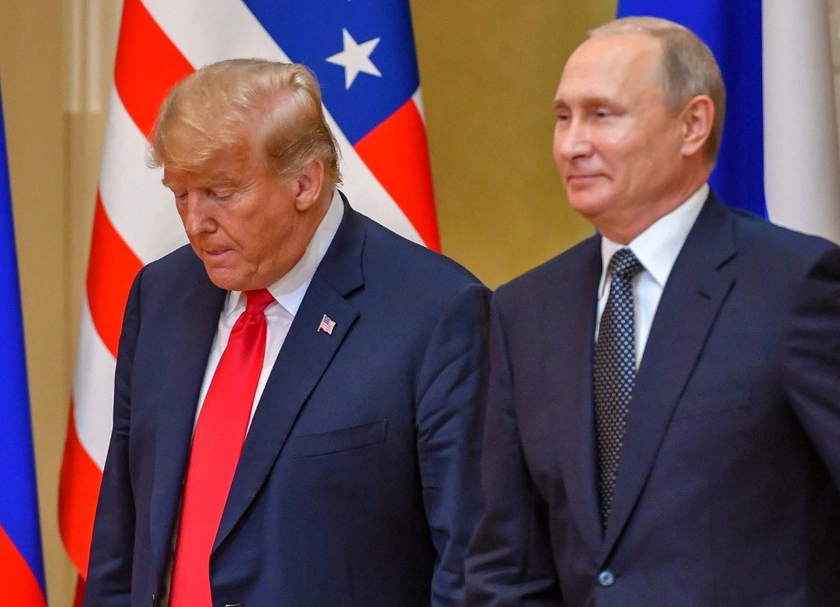This is not about the war. This is about all of Ukraine’s wars, spanning centuries – and one man, a poet, who passed away on Sunday, Jan. 29, 2023, at the ripe old age of 93 and is being buried today in his native village of Stopchativ, in the Ivano-Frankivsk region of western Ukraine.
He was a great poet, certainly, one of the most prominent Ukrainian poets of the modern era. It has been said that Vasyl Stus – the poet, dissident and martyr – marveled at the man’s talents and often sought his artistic advice.
JOIN US ON TELEGRAM
Follow our coverage of the war on the @Kyivpost_official.
The man was Dmytro Pavlychko. In his last 32 years, he was a model of Ukrainian patriotism, not only enhancing the Ukrainian political and cultural milieu but working to insure that all the nationalities within the newly independent Ukrainian state were part of a democratic process and able to pursue their own human and national realization.
He may have been a controversial and even divisive figure even during his good years, because he was so ardent, with a commanding personality. It is said that he convinced Leonid Kravchuk, the speaker of the parliament of the Ukrainian SSR and later the first president of independent Ukraine, in August 1991 to sign off on the proclamation of Ukraine’s renewed independence. Kravchuk, known to be notoriously noncommittal, was persuaded. And thus, Pavlychko was often referred to as the Cardinal Richelieu of the young Ukrainian state, albeit without the title.
Trump’s Efforts to Brown Nose Putin Continue
Pavlychko’s biography will be written and rewritten many times and by many people who knew him personally or simply knew of him. They say that a poet’s life is told in his poetry. This could not be truer than in his case.
During the nefarious ignominy of his Soviet period, he wrote poetry at the instruction of the Communist party, disparaging the nationalist Ukrainian diaspora, among others. Yet, at the same time, he wrote the words to a song that represented the Ukrainian nationalist struggle, “Two Colors,” black and red, representing Ukraine’s black earth drenched with the red blood of its heroes. Those words became almost hymnal and inspirational, motivating a new generation to rise up, which often resulted in repressions and imprisonment. Pavlychko’s motive was his Ukrainian heart.
Yes, he did the bidding of the enemy, yet somehow retained his patriotic fervor. He had profound convictions, but deep human flaws. His zeal is best depicted perhaps by his desire as a young adolescent Hutsul (resident of mountainous western Ukraine) to join the Ukrainian Insurgent Army. They did not accept him because of his age. Instead, he went on to study and write.
He needed to live and work, and the Soviet Russian enemy stood in his way unless he collaborated with them. Since he was ambitious, he understood that in order to achieve and even flourish in that society, he needed to satisfy the powers in charge there. In the last third of his life, as he bemoaned his past years of ideological servility, he often confessed a deep desire to make amends. He expressed much remorse. He apologized many times and claimed that he never wrote in Russian, which was not entirely true either. But he was a character, and this was the best defense he had.
A working relationship and friendship developed between Pavlychko the community activist and myself in the 21st century. We agreed on many issues. Even when we disagreed, we found compromises. I asked him to write a foreword to one of my books. He reviewed the text, told me that he disagreed with some of my analysis. I stressed that I wanted an honest opinion, would not be offended and time would tell. We visited at each other’s homes, ate varenyky and pilaf and discussed matters fervently and honestly. We often spoke about his past.
I am not nominating Pavlychko for sainthood, but certainly, he was one of the most prominent and influential Ukrainians of the 20th century. As a poet, writer, revolutionary, statesman, politician, and diplomat, he was one of the most productive personages of early Ukrainian statehood. He left an impression on everyone he met. If you met Pavlychko you did not forget him.
The dissidents and political prisoners considered him one of their own, even though he was neither a dissident nor a political prisoner. The former appeasers looked to him for leadership in a new role. He was a political force for Ukraine’s rebirth. He both loved and hated passionately.
Ukraine is a country of Pavlychkos, undaunted, indefatigable, irascible, and ready to fight. I would not be surprised if his family residing on the corner of Kyiv’s main street harbored several Molotov cocktails, weapons, and ammunition just in case the Russians actually reached the heart of Kyiv. The poet represents this fighting spirit.
If you wish to know Pavlychko, read his writings, and in particular, his poems. Yes, both the good and the bad! Even the Soviet ones are artistic. You may laugh, you will cry, and you may even call the poet an SOB or a national icon, depending on the text. But you will not leave indifferent. You will have a better understanding of not only the tragedy of Ukraine but its indomitability as well.
Eternal memory, Dmytro Pavlychko!
You can also highlight the text and press Ctrl + Enter











